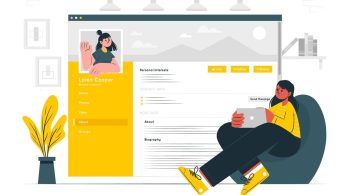The pandemic kickstarted the rapid evolution of telehealth in the world. What was once an occasional resource used for remote patients has now become a burgeoning industry where a patient’s vital signs can be monitored remotely, and nurses can consult with patients using various methods of communication. Patients can have virtual appointments with healthcare providers, including doctors, nurses, and specialists that involve discussion of symptoms, treatment plans, medication adjustments, and follow-up care. Patients who may be elderly or infirm can ask questions or request resources for simple matters without arranging for an in-person meeting with their doctor. This allows nurses to provide excellent patient care to their most vulnerable patients without causing them undue hardship.
This article explores the various roles nurses play in using telehealth for the benefit of their patients.
Remote monitoring
Nurses can track their patients’ health without being physically present. Patients can utilize wearable devices or home-based monitoring equipment to track their vital signs, such as heart rate, blood pressure, glucose levels, or oxygen saturation. This information can be remotely monitored by healthcare professionals, allowing for proactive management of conditions. Such monitoring allows the patient to keep their independence at home and lets them confidently take charge of their own healthcare while having convenient access to their healthcare provider.
Other ways nurses can help their patients remotely is by providing them with self-care management tools. Patients can access online resources, mobile applications, or educational materials provided by nurses to learn about self-care practices, medication management, lifestyle modifications, and preventive measures.
Support and coaching
Nurses can provide health coaching remotely. By providing one on one support virtually or holding team meetings with the patient and other members of the healthcare team, patients can receive personalized health coaching. This can involve setting health goals, creating action plans, and receiving guidance on behavior change or healthy habits.
These frequent check-ins are also excellent ways of keeping track of the patient’s mental health as well as physical health. Patients can access teletherapy or tele counseling services provided by mental health professionals. These remote sessions can address various mental health concerns, such as anxiety, depression, stress management, or grief counseling. This is especially important for those patients who may be isolated, as the lack of human interaction can affect their mental health. By having a caring voice at the other end of the phone line or computer screen, these patients can improve their outlook on life.
For patients who may not have access to a computer or the internet, nurses can offer telephone-based advice and guidance on managing their symptoms, understanding medication instructions, or handling minor health issues. They can also collaborate with the rest of the healthcare team to help with appointments and ensure continuity of care. Nurses are usually the first line of contact between the healthcare team and the patient, so they must possess excellent communication skills for both sides. They need to be able to communicate on a more technical level with healthcare professionals while discussing medical terms with patients using plain language.
Training
It is crucial in this ever-changing environment that nurses engage in continuing education and professional development. Nurses can participate in remote learning programs, webinars, or online courses to enhance their knowledge and skills. Teleconferences and virtual workshops can also provide opportunities for nurses to connect with peers and experts.
When a seasoned nurse is ready to take the next step in their career and move into teaching or management, they can apply for the online MSN nurse educator programs available from accredited institutes, like the University of Indianapolis. The flexibility of the online courses at the University of Indianapolis provides nurses with the necessary skills to guide the next generation of nurses into the future while maintaining a full-time role.
Charting and documentation
Areas such as remote charting and documentation allow nurses to remotely access electronic health records or other digital platforms to document patient information, track interventions, and review medical histories. This facilitates efficient communication and collaboration among healthcare teams and means that every team member can have the most up to date information on the patient without being in the same room. This also helps with consultations as the members can meet virtually and share perspectives wherever they are.
How does it all work?
Telehealth generates vast amounts of data that can be harnessed for better healthcare outcomes. Advanced data analytics can identify patterns, predict health risks, and improve population health management. This data-driven approach can aid in early detection, personalized treatment plans, and more effective interventions. While this area has traditionally been associated with remote consultations, its future will likely see an expanded scope of services. This may include virtual specialty consultations, remote surgeries supported by robotic technologies, remote physical therapy and rehabilitation, and even remote diagnostic imaging.
With these advancements, telehealth has the potential to foster stronger relationships between healthcare providers and patients. Regular virtual interactions can facilitate ongoing communication, education, and shared decision-making. Advanced telehealth platforms can offer features that improve patient engagement and satisfaction and remove the hardship that can come from commuting to a doctor’s office or hospital.
As telehealth becomes more widely adopted, regulations and reimbursement policies are likely to evolve to meet the changing landscape. Governments and insurers will need to adapt payment models and policies to ensure equitable reimbursement, licensing regulations, and privacy protections. This will remove any economic hardship that patients find themselves in when trying to maintain their healthcare.
Skills nurses need
To be involved in virtual healthcare, nurses need to possess a combination of traditional nursing skills and additional technical skills related to digital platforms and communication technologies. They should have a good understanding of virtual communication tools, electronic health record systems, remote monitoring devices, video conferencing software, and other telehealth technologies.
This knowledge comes from the mindset that learning is an ongoing process that never stops so it can continue to provide the best possible healthcare. Nurses who update these skills as often as they can and attend webinars and workshops will find themselves at the forefront of new technologies as well as providing leadership and inspiration to those around them.
Communication
As virtual healthcare requires effective communication through digital platforms, nurses should be adept at active listening, empathy, and clear verbal, written, and nonverbal communication to establish a connection with patients and colleagues remotely. Nurses are uniquely qualified to hone their communication skills as they are usually the first people patients see when they are triaged for their health assessments. Nurses work with individuals in all areas of healthcare, so they are adept at speaking with other professionals on a more technical level while they are also engaged with patients and their families. Seasoned nurses will know how to communicate with many different people in a clear and concise manner using language that is commensurate with the individual’s medical knowledge.
Virtual healthcare also breaks down geographic barriers, allowing nurses to interact with patients from different cultural backgrounds. Cultural competence enables nurses to effectively communicate, empathize, and provide patient-centered care while understanding and respecting diverse beliefs, practices, and values. A nurse who studies different cultures and has a clear understanding of different medical perspectives can treat each patient with tact, avoiding crossing any boundaries or disrespecting an individual’s belief system. They must also be aware of the ethical and legal implications of virtual healthcare, maintain patient confidentiality, uphold professional standards, and adhere to telehealth regulations. These regulations should be well-known and vigilantly adhered to.
Critical thinking
Nurses must also possess strong clinical judgment and decision-making skills. They need to be able to assess patient conditions remotely, prioritize care, escalate urgent matters, and think critically to address various healthcare scenarios virtually. By working in a team environment, nurses can learn assessment techniques from colleagues and get the necessary experience to pinpoint when there is a problem and when to escalate a healthcare emergency. They should be confident in their decisions and make them carefully with great consideration. Seasoned nurses will have the experience necessary to make strong clinical decisions and train less experienced nurses to do the same.
Data management is a critical area of knowledge with the software being used for healthcare. Nurses must be proficient in managing and documenting patient data in electronic health records systems, adhering to privacy and security guidelines, and maintaining accurate and thorough records of virtual patient encounters. They must also be able to efficiently manage their time, handle multiple patient appointments, and maintain a focus on patient needs while navigating digital tools. The skill of time-management is a challenging one and there are many apps and webinars on the subject that a nurse can access to keep themselves on track.
Adaptability
Virtual healthcare delivery may involve working with different technologies and adapting to rapidly changing situations. Nurses need to be flexible, open to learning new software, technologies, and protocols, and able to adjust to evolving telemedicine practices and guidelines. Flexibility is crucial in today’s technological environment as the old protocols they are accustomed to are becoming obsolete and innovations in healthcare are rapidly evolving. A nurse who is open to new ways of doing things and embraces technology will be able to keep track in a fast-paced environment and offer mentorship to newer nurses too.
Tech proficiency
Nurses should be able to provide patient education remotely, equipping patients and their families with the necessary information about their condition, treatments, medications, and self-care practices. This includes showing them resources such as online apps that can help them keep track of their vital signs, such as glucose levels and blood pressure, or any other areas they need to check on a regular basis. If a nurse is proficient in these areas and has excellent communication skills, they will easily demonstrate to their patients what needs to be done and empower them with independence.
What’s next?
The future of telehealth holds great potential for transforming healthcare delivery. Telehealth has the potential to greatly enhance access to healthcare services, especially for individuals in remote or underserved areas. It can bridge the gap between patients and providers by removing geographical barriers and ensuring healthcare reaches those who might otherwise face challenges accessing it. The future also involves advanced technology integration with innovations such as Artificial Intelligence (AI), machine learning, virtual reality, and augmented reality. These technologies can enhance diagnosis, remote monitoring, and treatment options. AI-powered decision support systems in particular can assist healthcare providers in diagnosing and treating patients more accurately and efficiently.
A nurse today is in a unique position to learn these technologies first-hand in hospitals and clinics. With advanced degrees, nursing professionals can open their own clinics with state-of-the-art technology and enhance their patient’s experiences in a positive way. Nurse Practitioners (NPs) who specialize in family health can use technological innovations to pinpoint genetic diseases and provide education and resources for preventative lifestyle changes.
Advanced technologies such as smartwatches and fitness trackers will become more prevalent in telehealth too. These devices can collect and transmit real-time health data to healthcare providers, enabling remote monitoring of patients’ vital signs, chronic conditions, and overall wellbeing. This can lead to more proactive and preventive care.
Concluding thoughts
Nurses in virtual healthcare should be committed to ongoing professional development to keep up with emerging technologies, latest tele health guidelines, and best practices. They must be tactful, empathetic, and excellent communicators on all levels. Nurses are critical in enhancing the field of telehealth for patients and are always looked to as a source of great knowledge and a valuable resource.






